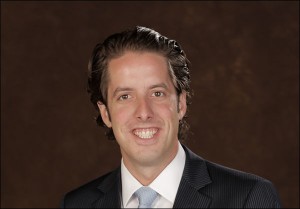ON THE DEFENSIVE: Planted evidence yields only harm for justice system
By: Anthony Cotton//April 2, 2015//
ON THE DEFENSIVE: Planted evidence yields only harm for justice system
By: Anthony Cotton//April 2, 2015//

There is nothing that harms the integrity of the criminal justice system more than a rogue officer planting evidence.
This type of illegal and unconstitutional behavior destroys public confidence in the justice system and erodes the very principles that our system was founded on.
For years, the city of Milwaukee has been grappling with claims that a group of police officers conducted warrantless body-cavity searches of suspects. The Milwaukee Police Department has also been rocked by claims that Sgt. Jason Mucha planted drugs on defendants.
A recent case in Kenosha does even more to reveal the sinister nature of police misconduct.
During a homicide trial for Joseph Jamal Brantley, Officer Kyle Baars admitted that he planted an ID and a bullet in the defendant’s backpack, which was seized in a search stemming from an investigation into a fatal robbery. In a Perry Mason moment, Christopher Glinski, a defense attorney, asked Baars: “Is the truth, in fact, that you planted that .22 caliber bullet in the bedroom at 1208 59th St.?” Baars replied, “Yes.”
Baars then admitted that he had brought the .22 caliber bullet from his house, placing it in his pocket before his shift began that day.
The officer resigned in January following an internal investigation and his admitting to illegal behavior.
At root, this incident is troublesome because it increased the likelihood that an innocent person would be convicted of a crime he didn’t commit. The broader question raised, however, concerns the ways in which prosecutors should uphold their obligation to turn over so-called Brady material.
In Brady v. Maryland, the U.S. Supreme Court held that withholding exculpatory evidence violates due process when that evidence is material to either guilt or punishment. Prosecutors often interpret their Brady obligations narrowly, thus limiting the number of situations in which they turn over helpful material to the defense. Often, the defense must be shrewd in using open records demands to ensure that all helpful and relevant information is secured. To be fair, many times local prosecutors are unaware of Brady material because of insufficient coordination between their offices and law enforcement.
The jury is still out on what happened in Kenosha. Baars testified that he notified his superiors in October and November that he had planted evidence. The Kenosha District Attorney’s Office, however, did not reveal this information to defense attorneys until January, shortly before trial. Additionally, it seems that the information was communicated through a toned-down report that failed to properly portray the significance of the misconduct.
Kenosha District Attorney Robert Zapf described the officer’s behavior as “stupid.” A better adjective would probably be “illegal.”
There is likely no way to entirely eliminate police misbehavior. But prosecutor’s offices need to ensure that local police departments understand the broad nature of Brady, so that when misconduct comes to light, defense attorneys are promptly apprised of it.
Legal News
- Milwaukee’s Common Council now has the most African Americans, women and openly LGBTQ members ever
- Office of School Safety Provides Behavioral and Threat Assessment Management Training Ahead of 25th Anniversary of Columbine Shooting
- Wisconsin Supreme Court to hear arguments in Democratic governor’s suit against GOP-led Legislature
- Lawsuit asks Wisconsin Supreme Court to strike down governor’s 400-year veto
- Wisconsin man pleads not guilty to neglect in disappearance of boy
- ACS Selects University of Wisconsin Law School’s Miriam Seifter for 2024 Ruth Bader Ginsburg Scholar Award
- People with disabilities sue in Wisconsin over lack of electronic absentee ballots
- Wisconsin Republicans ignore governor’s call to spend $125M to combat ‘forever chemicals’
- Native American voices are finally factoring into energy projects
- Steven Avery prosecutor Ken Kratz admits ‘mistakes were made’
- Colombian national extradited to Milwaukee faces International narcotics-trafficking conspiracy charge
- MPD: Milwaukee homicides down nearly 40 percent compared to last year
WLJ People
- Power 30 Personal Injury Attorneys – Russell Nicolet
- Power 30 Personal Injury Attorneys – Benjamin Nicolet
- Power 30 Personal Injury Attorneys – Dustin T. Woehl
- Power 30 Personal Injury Attorneys – Katherine Metzger
- Power 30 Personal Injury Attorneys – Joseph Ryan
- Power 30 Personal Injury Attorneys – James M. Ryan
- Power 30 Personal Injury Attorneys – Dana Wachs
- Power 30 Personal Injury Attorneys – Mark L. Thomsen
- Power 30 Personal Injury Attorneys – Matthew Lein
- Power 30 Personal Injury Attorneys – Jeffrey A. Pitman
- Power 30 Personal Injury Attorneys – William Pemberton
- Power 30 Personal Injury Attorneys – Howard S. Sicula








